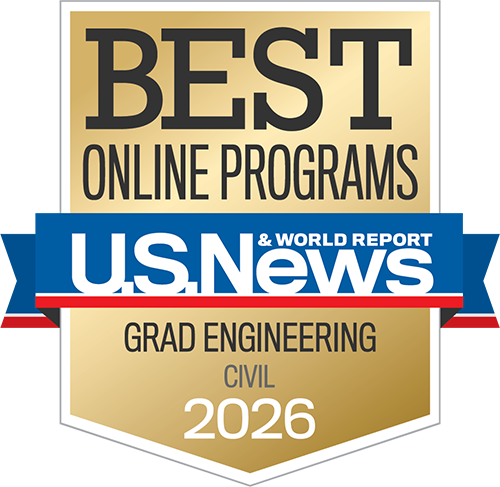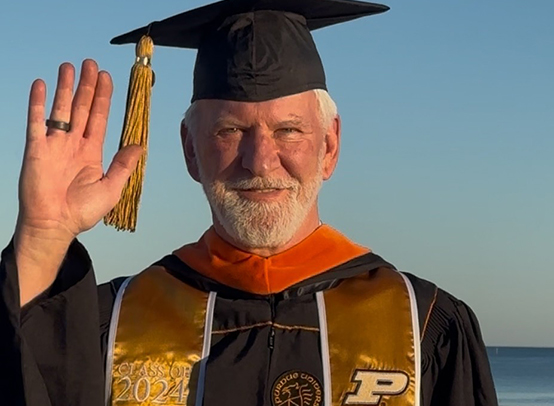 Experience the excellence and prestige of Purdue University's online Master of Science in Civil Engineering (MSCE) — delivering the same faculty expertise, rigorous courses and respected degree as our on-campus program, with the flexibility of completing your studies 100% online.
Experience the excellence and prestige of Purdue University's online Master of Science in Civil Engineering (MSCE) — delivering the same faculty expertise, rigorous courses and respected degree as our on-campus program, with the flexibility of completing your studies 100% online.
Civil engineering spans a diverse set of disciplines, and Purdue's faculty continually evolves the curriculum to reflect the emerging needs of a rapidly changing field. The online MSCE empowers professional engineers to expand their expertise through three interdisciplinary tracks: Infrastructure, Resiliency and Sustainability; Sustainable Water; and Smart Mobility. Interdisciplinary training has been shown to enhance collaboration, strengthen problem-solving and open the door to a broad range of career opportunities.
Ranked the No. 1 online civil engineering graduate program in the nation by U.S. News & World Report, 2026, Purdue's online MSCE is designed to accelerate your career. Whether your interests center on structural or infrastructure engineering, advanced transportation technologies or hydrology and hydraulics, the curriculum is built to support your professional goals and long-term aspirations.
Now is the ideal moment to advance your expertise. With rising national demand for civil engineers driven by major infrastructure investments, Purdue's online MSCE offers the opportunity to take your next giant leap.
Supporting Your Path Toward Professional Engineering (PE) Licensure
Purdue's online MSCE strengthens the advanced technical knowledge directly reflected on the Professional Engineer (PE) exam — helping you build the foundation needed for licensure and career advancement. Coursework across structural, transportation, water, geotechnical and construction engineering deepens analytical skills and reinforces the problem-solving abilities essential for exam readiness.
Civil engineering disciplines consistently report higher first-attempt PE pass rates compared with the broader engineering profession, including:
- Construction Engineering: 53%
- Geotechnical Engineering: 52%
- Structural Engineering: 59%
- Transportation Engineering: 67%
The online MSCE equips students with the technical depth, confidence and preparation required as they pursue professional licensure and long-term advancement in the field.


